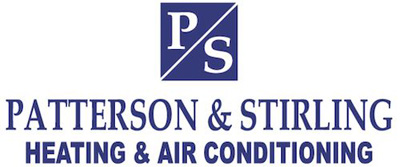
Ever done a double take when you checked your last energy bill? Although high energy bills can be the result of severe weather conditions, persistently high bills can also signify an inefficient HVAC system or your home is using too much energy by other means, such as drafty windows or poor insulation.
One of the easiest ways to identify whether your home is using too much energy is by getting a home service professional to complete a home energy audit, also called a home energy assessment. Keep reading to learn all about home energy audits, including what they are and their advantages.
What Is a Home Energy Audit?
An energy audit is a comprehensive inspection of how much energy your home consumes and whether – and where – your home could be losing or wasting energy. An inspector will go through previous energy bills in the course of an energy audit to figure out where energy is being used and how much.
The ultimate goal of an energy audit is to help homeowners save money on their energy bills by suggesting energy-efficient improvements, which might include swapping out your current HVAC system, installing new insulation, plugging up leaks, or replacing drafty windows.
While completing the energy assessment, the auditor also completes an inspection of the outside and inside of your home. The auditor completes a blower door test on doorways, windows and fireplaces to figure out if there are air leaks in your home. They’ll also inspect your home’s HVAC system, as well as the ductwork, the water heater, and the insulation in your attic. Comprehensive assessments could also include inspecting your current lighting system.
Benefits of a Home Energy Audit
It can be tough for the typical homeowner to be sure how efficient their home is compared to other similar homes in their community. However, local energy companies often offer information about where your home ranks when compared with similar homes and whether it’s more efficient, about average, or inefficient compared to your neighbors’ homes. This could be a good starting point to figure out if you need an energy audit scheduled.
Several of the benefits of a home energy audit include:
Learning How Efficient Your Home Is
It’s worthwhile to understand how efficient your home is and where you’re using up the most energy. For example, if your ducts are leaking, it can lead to a significant increase in your energy bills and increased wear and tear on your HVAC system as it has to work longer to properly heat or cool your home.
Making Energy-Efficient Updates
An energy audit will reveal where you need to make energy-efficient changes to cut back on energy and decrease utility bills. This might include replacing worn-down weatherstripping or getting a new energy-efficient furnace.
Improving Health and Safety
Permitting air to leak into your home through doors and windows, or as a result of a lack of insulation can cause excessive moisture to form, which can negatively affect your home’s humidity levels or lead to mold. This can cause health issues, particularly for people who have asthma or allergies.
Raising Your Home’s Retail Value
Energy-efficient homes are desired by homebuyers. You can sell your home much faster or for more money by showing possible buyers that it’s energy efficient.
How to Complete an Energy Audit of Your Home
Although performing an energy audit on your own will not be as detailed as choosing a professional, it’ll offer a general understanding of how energy efficient your home is. If you don’t discover any issues during the DIY test, then you probably don’t need to hire a professional. Try this step-by-step checklist:
- Inspect your HVAC system. Leaky ducts can lose up to 20% of conditioned air, resulting in steeper energy bills and excess strain on HVAC equipment. If you find leaks, use duct tape to close them. If your HVAC equipment is old and inefficient, upgrading to a new system can save you a significant amount on your energy bills. In some cases, it might be better to call a reputable HVAC company to inspect your system.
- Watch for signs of air leaks. Air leaks on average can increase the energy bills by 10 to 20%. Inside, look for air leaks in areas where there could be a draft, such as along the edge of flooring and close to baseboards and electrical outlets. Outside, you can inspect for air leaks along the home’s foundation, siding and mortar. Plug, caulk or seal any air leaks to save money.
- Examine insulation. If your home is older, it could mean your insulation is too. If you can see the joists, you likely need more insulation.
- Check the ventilation. Ensure that all of your kitchen and bathroom exhaust fans are working properly, and look for evidence of rot or moisture.
Contact Patterson & Stirling for a Professional Energy Audit
If you are interested in professional help finding out how energy efficient your heating and cooling equipment is, call the HVAC experts at Patterson & Stirling today. We’ve proudly served the residents of Erie with quality home services for a long time. Contact us today to schedule an appointment.


